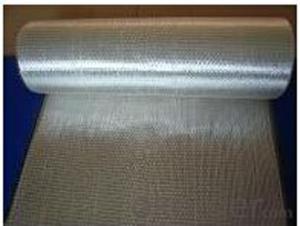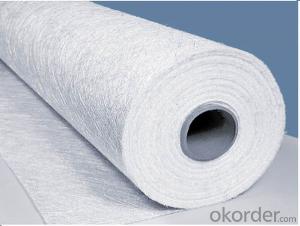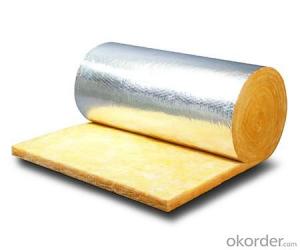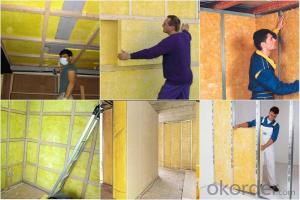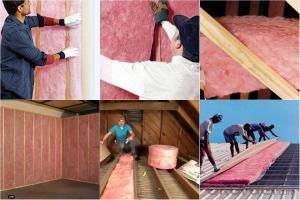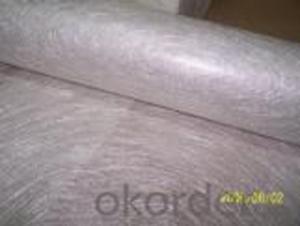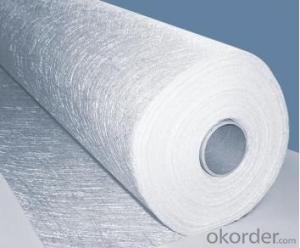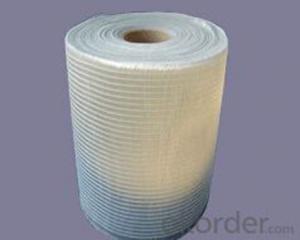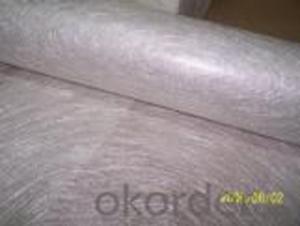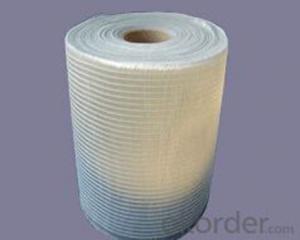Fiberglass Mat Tissue - C-Glass Stitch Chopped Strand Mat 380gsm, 50-2400mm Width
- Loading Port:
- Shanghai
- Payment Terms:
- TT or LC
- Min Order Qty:
- 2000 kg
- Supply Capability:
- 3000000 kg/month
OKorder Service Pledge
OKorder Financial Service
You Might Also Like
Fiberglass C-glass Stitch Chopped Strand Mat with Density
Product Description
Fiberglass stitch chopped strand mat is the mat made of fiberglass roving which is at first be cut into certain length and evenly unfolded in all directions and then stitched with polyester yarn.
Product Treatures
• Fiberglass no certain direction, good homogeneity.
• No powder or emulsion; sink quickly and easy to operate
• High tensile strength, easy to operate
• Good impact strength of finished products
Applications
Mainly be used as reinforced materials in the composite material industry.
• Matrix: unsaturated polyester resin, vinyl ester resin, epoxy resin and phenolic resin etc.
• Craft: winding, pultrusion, RTM, molded, hand lay up, etc.
• Ultimate products: Liner layer of tube, pultruded profiles, FRP body of boat, insulation board
Image:
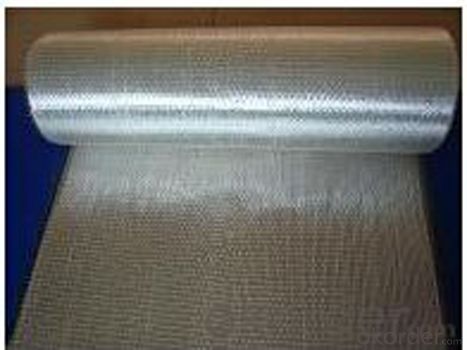
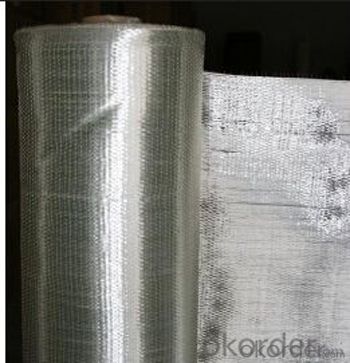
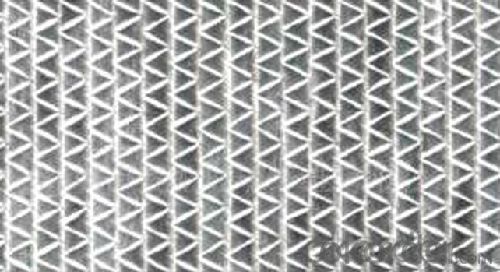
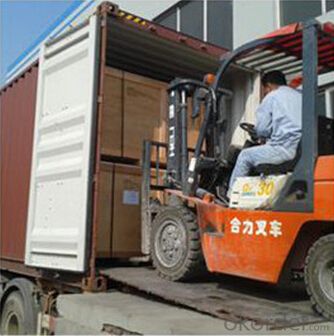
Specifications
Specifications | Fibre type | Areal weight | Width |
(g/㎡) | (mm) | ||
EMK 300 | E-Glass | 300 | 50-2400 |
EMK380 | E-Glass | 380 | 50-2400 |
EMK450 | E-Glass | 450 | 50-2400 |
CMK 300 | C-Glass | 300 | 50-2400 |
CMK380 | C-Glass | 380 | 50-2400 |
CMK450 | C-Glass | 450 | 50-2400 |
Packaging: Wrapped in PVC and placed within a cardboard carton. | |||
FAQ
1. Payment terms?
We can accept L/C, T/T etc.
2. Do you offer OEM service?
Yes, we can print customers’ logo on the packaging;
And the size and specification can be produced and design according to your demand.
3. Why Choose us?
CNBM is a stated own company, provide the guarantee for the best quality, best service and safety business.
- Q: Is fiberglass mat tissue easy to install?
- Yes, fiberglass mat tissue is relatively easy to install. It is a lightweight and flexible material that can be easily cut and shaped to fit any surface. It can be applied using various methods such as spraying, rolling, or brushing on adhesive. The tissue is also self-adhesive, which makes it even easier to install as it can easily stick to the desired surface. Additionally, fiberglass mat tissues are typically designed to be water-resistant and provide excellent insulation properties, making them a popular choice for a wide range of applications. Overall, with proper preparation and following the manufacturer's instructions, installing fiberglass mat tissue can be a straightforward and hassle-free process.
- Q: What are the common sizes available for fiberglass mat tissue?
- The sizes of fiberglass mat tissue can differ depending on the application or manufacturer. Various widths are commonly found, such as 1 meter (39 inches), 1.27 meters (50 inches), and 1.52 meters (60 inches). Similarly, the length of the fiberglass mat tissue can vary, ranging from 50 meters (164 feet) to 300 meters (984 feet) or even longer. It is essential to acknowledge that these dimensions are merely illustrative and may not encompass all sizes obtainable in the market.
- Q: Is fiberglass mat tissue suitable for aerospace interiors?
- Fiberglass mat tissue is indeed a suitable material for aerospace interiors. This material is both lightweight and extremely versatile, providing exceptional strength and durability. Its widespread use in aerospace applications is due to its ability to meet rigorous fire safety standards, including low smoke and toxicity emissions. Furthermore, fiberglass mat tissue exhibits resistance to moisture, chemicals, and temperature fluctuations, making it an ideal option for the challenging conditions found within an aircraft cabin. Its exceptional sound insulation properties further contribute to its suitability for aerospace interiors, guaranteeing a pleasant and noise-free environment for passengers. All in all, fiberglass mat tissue offers a dependable and effective solution for aerospace interior applications.
- Q: How does fiberglass mat tissue perform in terms of mold and mildew resistance?
- Fiberglass mat tissue demonstrates excellent resistance to both mold and mildew. The material is inherently moisture-resistant, which prevents the growth of mold and mildew. Additionally, fiberglass is non-porous and does not provide a suitable environment for these microorganisms to thrive. Furthermore, fiberglass mat tissue is often used in applications where moisture is present, such as in bathroom walls or showers, and it has proven to be highly effective in preventing the growth of mold and mildew. Overall, fiberglass mat tissue performs exceptionally well in terms of mold and mildew resistance, making it a reliable choice for applications where these concerns are prevalent.
- Q: Is fiberglass mat tissue resistant to mold and mildew?
- Yes, fiberglass mat tissue is resistant to mold and mildew due to its non-porous and moisture-resistant properties.
- Q: What are the typical roll sizes available for fiberglass mat tissue?
- The manufacturer and specific application determine the varying sizes of fiberglass mat tissue rolls. Generally, they range in width from 50 inches to 120 inches and in length from 100 yards to 1,000 yards. These sizes are frequently utilized in construction, automotive, and marine industries for purposes such as insulation, reinforcement, and soundproofing. It should be emphasized that the availability of particular roll sizes may vary depending on the supplier and the intended use of the fiberglass mat tissue.
- Q: How does the porosity of fiberglass mat tissue affect its performance?
- The porosity of fiberglass mat tissue plays a significant role in determining its performance. Porosity refers to the density of tiny pores or holes in the material, which affects the material's ability to absorb and hold fluids, as well as its strength and durability. Firstly, the porosity of fiberglass mat tissue influences its absorption capability. A higher porosity allows the tissue to absorb more fluids, such as resins or binders, during the manufacturing process. This absorption is crucial as it ensures better adhesion between the fiberglass mat and the bonding material, resulting in a stronger and more durable end product. Secondly, the porosity of the fiberglass mat tissue affects its strength and stiffness. Lower porosity generally indicates higher density and a more tightly packed structure, resulting in increased strength and stiffness. This is beneficial in applications where the material needs to withstand high mechanical stresses or act as a structural component. Additionally, the porosity of the fiberglass mat tissue impacts its thermal and acoustic insulation properties. Higher porosity typically leads to better thermal and acoustic insulation due to the increased number of air pockets within the material. These air pockets act as barriers, reducing heat transfer and sound transmission, making the material suitable for applications requiring thermal or acoustic insulation. Furthermore, the porosity of fiberglass mat tissue can influence its filtration capabilities. If the material has a high porosity, it can trap and hold particles more effectively, making it suitable for use in filtration systems. Conversely, a low porosity may allow for better flow rates, making it more suitable for applications where fluid permeability is important, such as drainage applications. In summary, the porosity of fiberglass mat tissue affects its performance in various ways. It determines its absorption capability, strength, stiffness, thermal and acoustic insulation properties, filtration capabilities, and fluid permeability. Therefore, understanding and controlling the porosity of fiberglass mat tissue is essential to ensure optimal performance in a wide range of applications.
- Q: Can fiberglass mat tissue be used for making electrical enclosures?
- No, fiberglass mat tissue is not suitable for making electrical enclosures. Electrical enclosures require materials that have good electrical insulation properties to prevent electrical shocks and short circuits. Fiberglass mat tissue is primarily used for reinforcement in composites and does not possess the necessary electrical insulation properties. Materials such as plastics, polymers, or metals with appropriate electrical insulation characteristics should be used for making electrical enclosures.
- Q: How does the fiber orientation of fiberglass mat tissue affect its strength?
- The fiber orientation of fiberglass mat tissue greatly affects its strength. When the fibers are aligned in a specific direction, they provide maximum strength in that direction. However, if the fibers are randomly oriented, the overall strength of the material is reduced as the load may not be evenly distributed among the fibers. Therefore, proper fiber orientation is crucial in maximizing the strength of fiberglass mat tissue.
- Q: Can fiberglass mat tissue be used for insulation in power plants?
- Yes, fiberglass mat tissue can be used for insulation in power plants. It is a common material used for thermal insulation due to its excellent heat resistance and insulation properties.
Send your message to us
Fiberglass Mat Tissue - C-Glass Stitch Chopped Strand Mat 380gsm, 50-2400mm Width
- Loading Port:
- Shanghai
- Payment Terms:
- TT or LC
- Min Order Qty:
- 2000 kg
- Supply Capability:
- 3000000 kg/month
OKorder Service Pledge
OKorder Financial Service
Similar products
Hot products
Hot Searches
Related keywords
